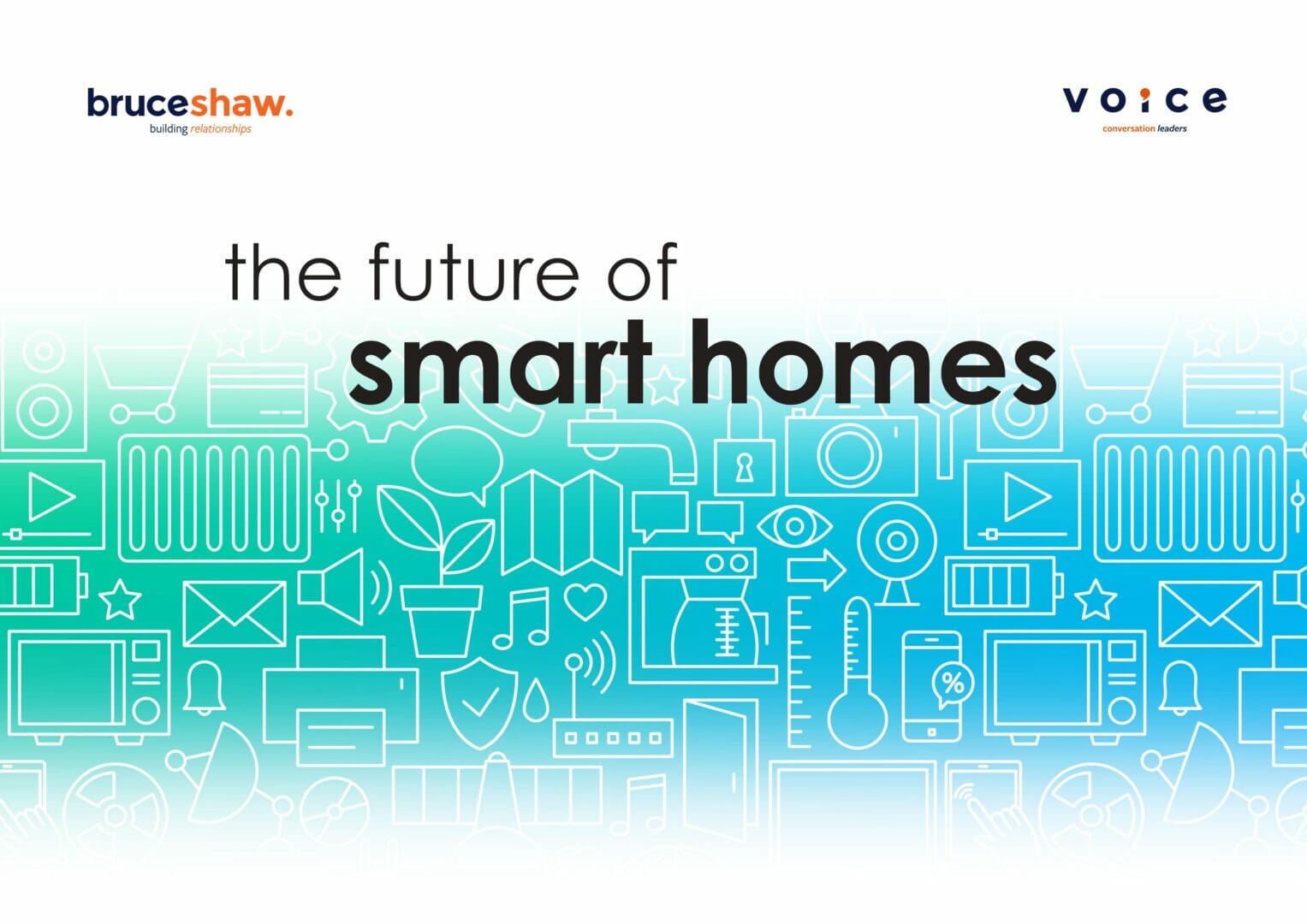
With the building sector now fully embracing smart technology in the home, following its silent creep into the consumer market, Bruceshaw explores the smart home phenomena in its latest Bruceshaw Voice.
Asking the question: “What is the definition of a smart home?” the paper explores the future of smart homes and how we get there.
Most consumer smart home devices are not used for the more significant purposes that are of interest to those in planning, building and government – the management and conservation of energy and other resources, as they are in buildings used for other purposes.
A smart home should both take the mundane tasks out of everyday life as well as make the home more efficient and therefore cheaper to live in. A dwelling that, as Associate, Rishi Rai puts it, “integrates modern technologies at a very high level to help the owner enjoy their home more.”
Key points include:
Money-Saving Benefits With electricity in particular, smart homes could eventually facilitate not just lower bills but the maintenance of a consistent supply by mitigating energy use.
Consumers may want the smart home to be an enjoyable place, however, “what they need is a home that has less environmental impact. But it’s not a matter of having to choose between the two,” says Colin Park, Associate.
Overcoming Security Fears Everything about modern technology suggests that people will accept some risk of loss of privacy and potential security threats, so long as they get greater convenience in return. Chris Patrick, Partner, states: “If people see a tangible benefit to their smart home they accept the choices the smart home is making.”
Fitting for the Future A new smart home, or a redeveloped older home, will require an infrastructure that future-proofs certain functions. This includes a fast internet connection and fast connectivity within the home, from router to all your smart home devices.
Manual Override Capabilities We will see more fully automated homes in the near future but there still needs to be a manual override. Bruceshaw discussed that there is an element of automation that is very beneficial, but choice shouldn’t be restricted by a home constantly deciding what you want.
“For people’s peace of mind as well, there needs to be some way to bypass machine control, or turn it off entirely…even if that off switch isn’t ever actually used,” adds Chris Patrick.
Building the Smart Home The arrival of technology as the ‘4th utility’ in a home brings with it numerous challenges. “It is an interesting time,” says Colin Park, “the physical world is changing as we embrace technology.”
Chris Patrick elaborates: “we need to reduce these big spikes in energy use and water use. Integrated homes can help us do that. If your home can monitor your behaviour and optimise itself, without you having to modify your behaviour, that can only be a good thing.”
This edition of Bruceshaw Voice was created in conversation with Journalist Duncan Bell, Bruceshaw’s Partner Chris Patrick and Associates Rishi Rai and Colin Park.
Link to whitepaper < https://www.bruceshaw.com/insights/the-future-of-smarthomes/
